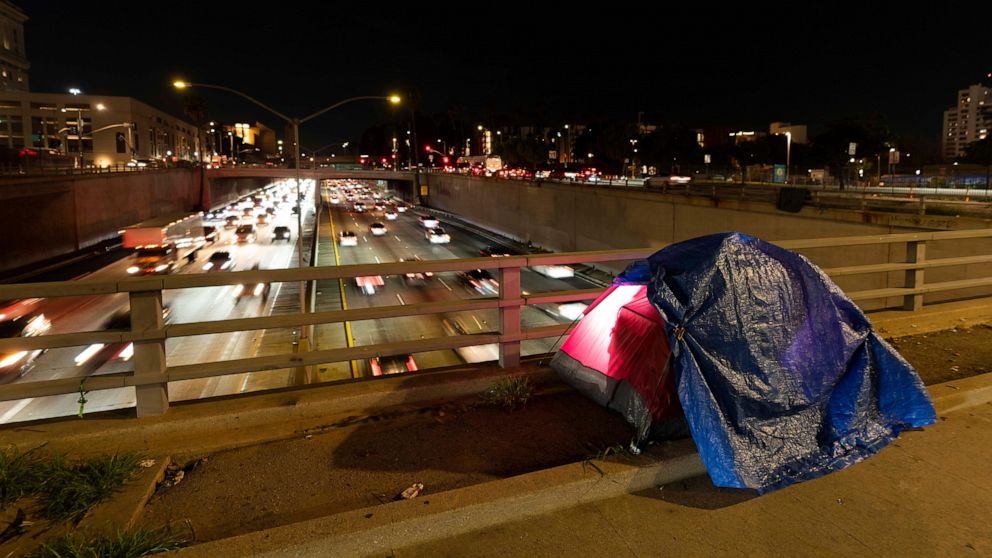The number of homeless residents counted in Los Angeles County has spiked again, increasing by 9% since last year
The number of homeless residents counted in Los Angeles County has spiked again, increasing by 9% since last year in the latest marker of how deep the crisis is of people sleeping in cars, encampments or shelters in California.
Results released Thursday from a federally required tally conducted in January found 75,518 people were homeless on any given night across the county, compared with 69,144 in 2022. About 46,260 were within the city of Los Angeles, where public frustration has grown as tents have proliferated on sidewalks and in parks.
The increase was made up entirely of residents living on the streets, as opposed to those in shelters. The countywide unsheltered population increased 14% to more than 55,000, while the number of people in shelters declined slightly to just over 20,000.
Since 2015, homelessness has increased by 70% in the county and 80% in the city.
Los Angeles Mayor Karen Bass declared a homelessness state of emergency on her first day in office last December. She has allotted what she called a record $1.3 billion in the city budget to get unhoused people into shelter and treatment programs.
Bass, a Democrat, said Thursday that the grim results of the count by the Los Angeles Homeless Services Authority, or LAHSA, emphasizes the need to treat homelessness as a crisis.
“The challenge before us is vast, but we will continue to work with urgency to bring Angelenos inside but also to protect Angelenos from falling into homelessness. If we don’t do both, we will continue this cycle,” she said in a statement. “Lives depend on it.”
Her signature program, dubbed Inside Safe, offers homeless people motel rooms and a path to permanent housing with services. It has more than 14,000 enrollees so far, Bass said earlier this month.
LA County is the nation’s most populous, with about 10 million people. More than 1 in 5 of all homeless people in the U.S. live in the county, based on a 2022 federal tally.
The problem is most apparent in downtown Los Angeles, where thousands of people live in makeshift shanties that line entire blocks in the notorious neighborhood known as Skid Row. Tents regularly pop up on the pavement and parks outside City Hall, and encampments increasingly are found in suburban areas and under freeway overpasses.
Volunteers with LAHSA fanned out across the county in January for the effort’s main component, the unsheltered street tally. The so-called point-in-time count took place over three days but results weren’t released until they were validated by the U.S. Department of Housing and Urban Development.
Among other findings, about 31% of homeless people in the count were Black, which is more than four times than their overall share of the county population. Nearly 43% identified as Latino.
About 30% of unhoused people reported experiencing substance abuse problems, up slightly from the previous year.
Congress requires the tallies every two years and uses the information to distribute resources for homeless services.
Democratic Gov. Gavin Newsom has budgeted record sums to combat homelessness that pervades the state’s major cities and many smaller communities.




